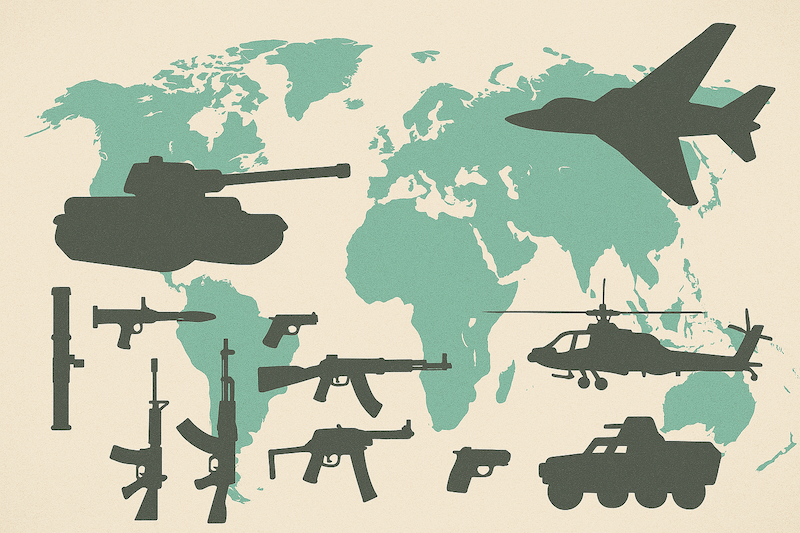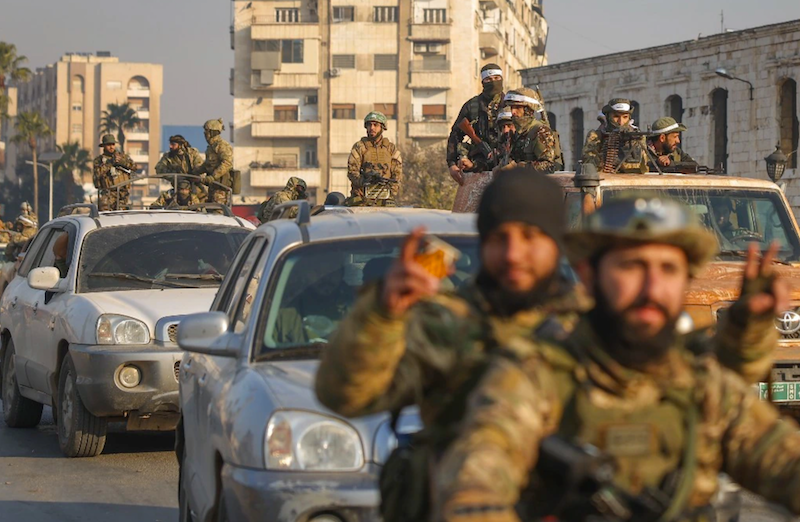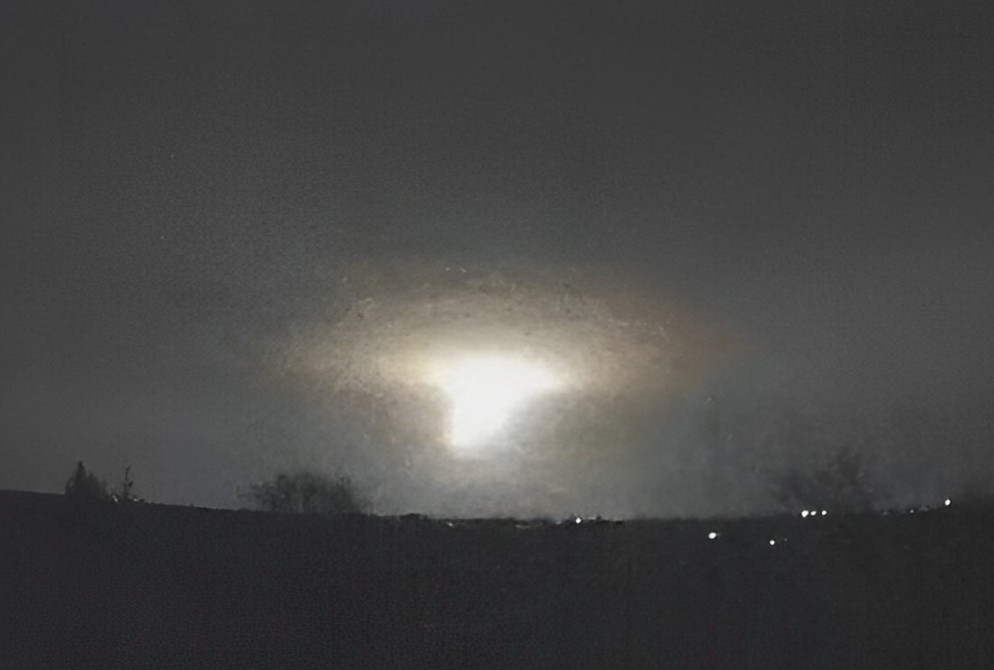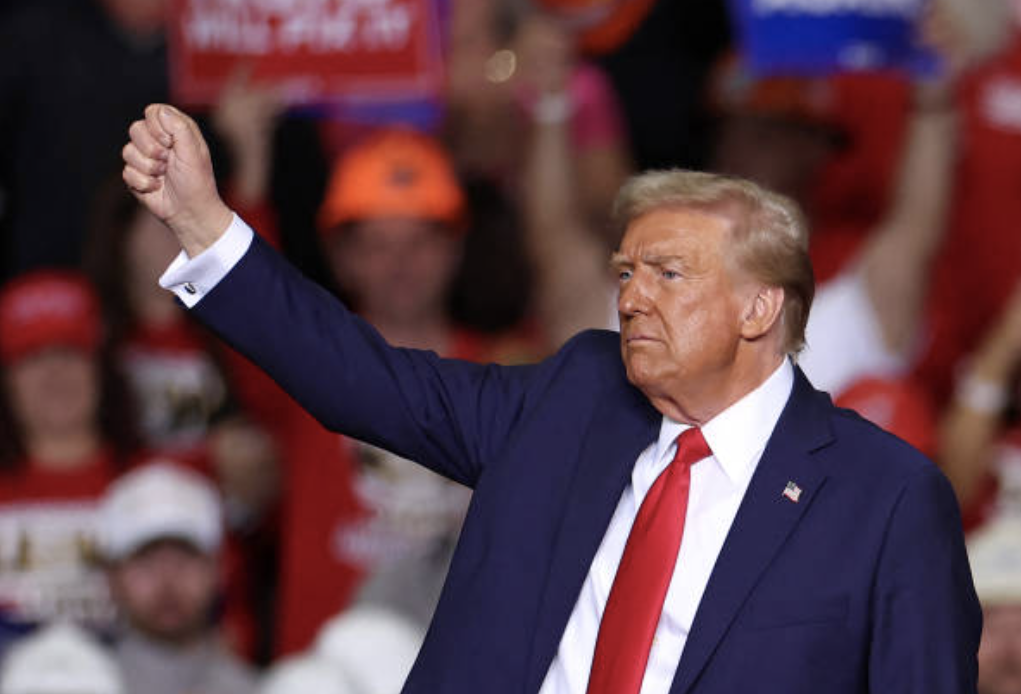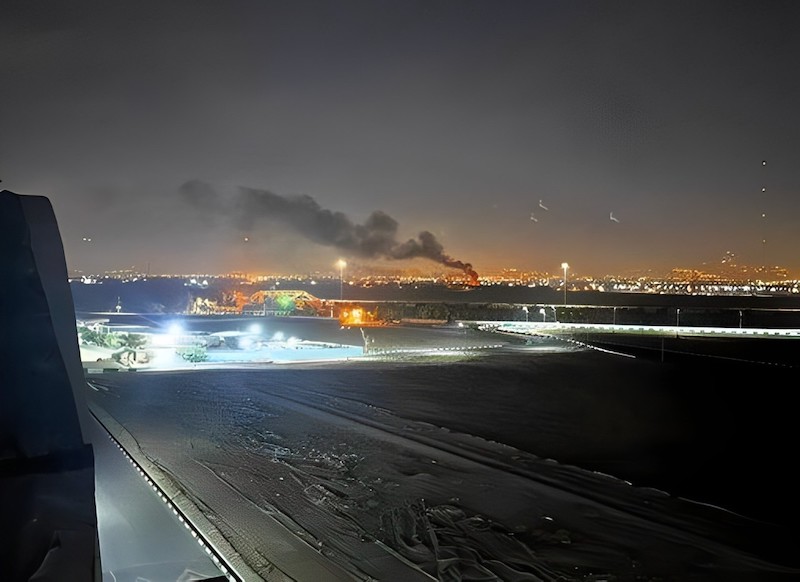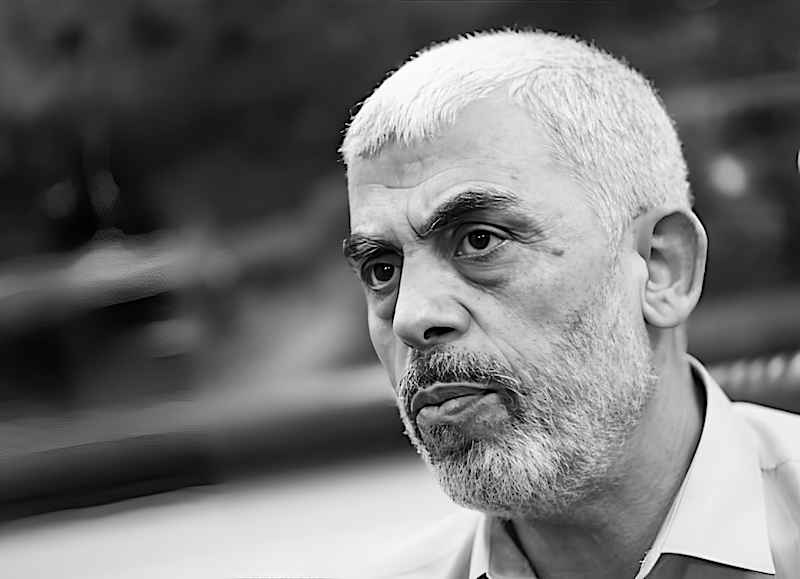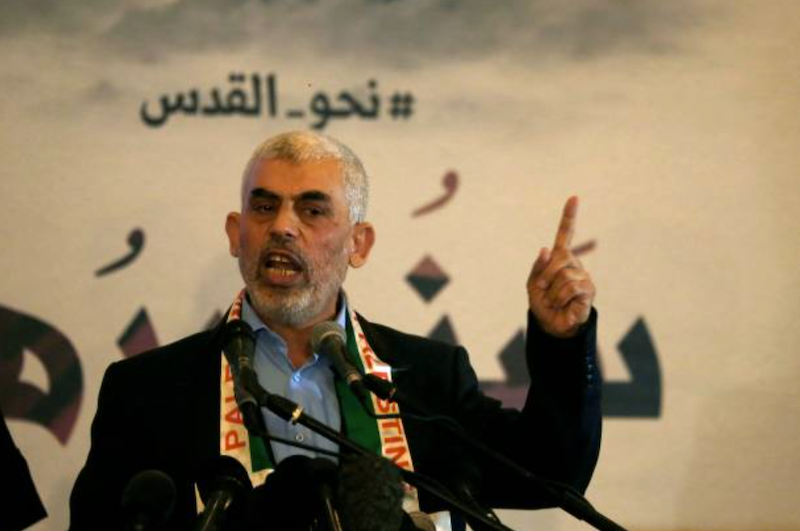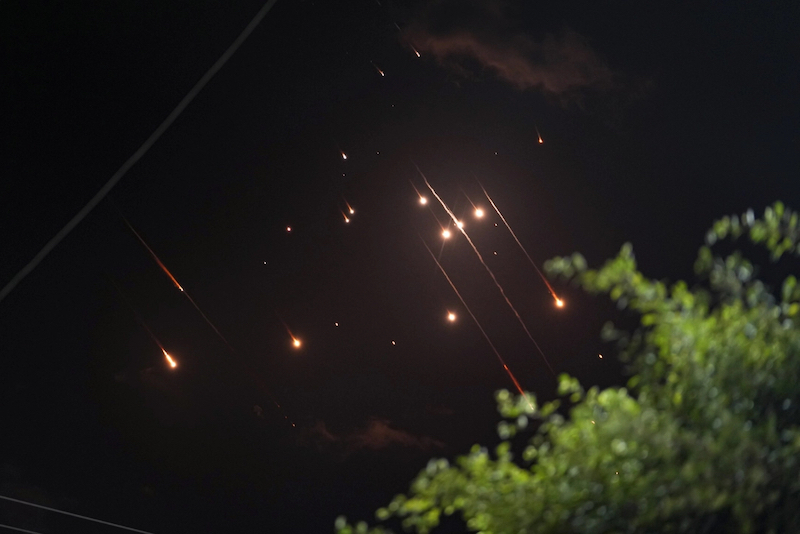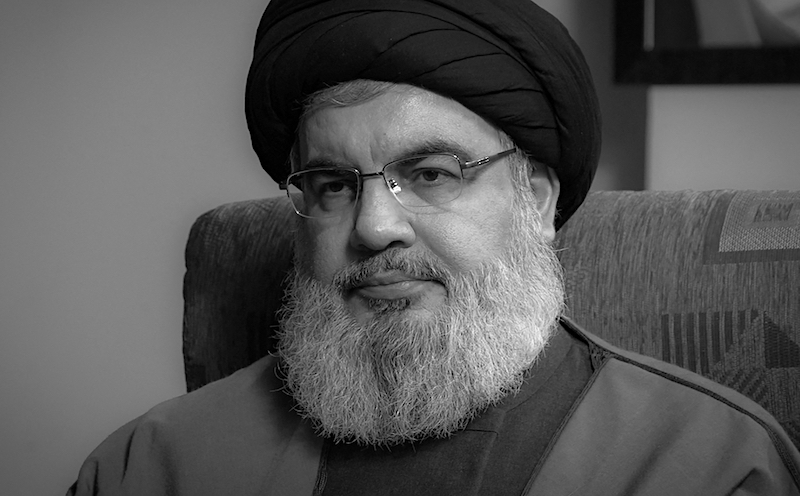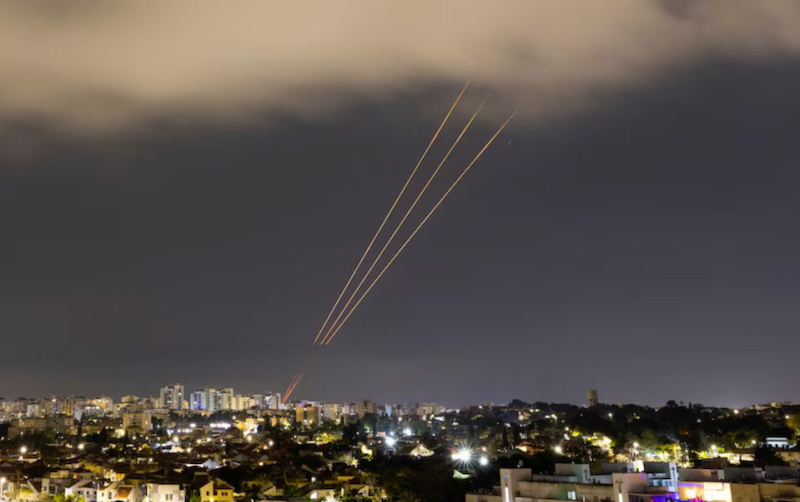 An Israeli air-defence system ammunition towards incoming Iranian drones and missiles over Israel. (Photo: X)
An Israeli air-defence system ammunition towards incoming Iranian drones and missiles over Israel. (Photo: X)
New Delhi: Iran fired a barrage of drones and missiles at Israeli military sites, on Saturday night and early on Sunday, in retaliation for the April 1 Israeli airstrike on its consulate in Damascus. The airstrike on the consulate had killed 13 people, including a senior Iranian military commander from the country’s Islamic Revolutionary Guard Corps, who was in charge of the IRGC’s elite Quds Force.
The launching of the drones and missiles targeting Israel from Iranian soil marks a dangerous escalation in the longstanding conflict between the two nations.
According to Israeli military officials, the assault began with a wave of over 100 drones, followed by a sustained barrage of cruise and ballistic missiles. Some media reports quoting Israel’s chief military spokesman, Daniel Hagari, said Iran’s attack involved more than 120 ballistic missiles, 170 drones, and more than 30 cruise missiles.
Israel’s air-defence systems, which includes systems like Iron Dome, Arrow, David’s Sling, etc, aided by the United States, United Kingdom, and Jordanian forces, managed to intercept a vast majority of the incoming projectiles. However, a small number of missiles breached the defences, causing minor damage to the Nevatim airbase in southern Israel and injuring a young girl in a Bedouin village.
It is widely believed that F-35 fighters hit the Iranian consulate in Damascus, and those warplanes are housed in the Nevatim airbase.
As the Iranian attack on Israeli sites were going on, the Israeli military asked residents of Israeli-occupied Golan Heights – near the Syrian and Lebanese borders and Nevatim, Dimona, and Eilat in the south to be near bomb shelters.
The IRGC claimed responsibility for the attack, codenamed “Operation True Promise”. Iranian media reported the use of Shahed-series drones and various types of cruise and ballistic missiles, marking the largest drone strike and one of the biggest missile attacks in history.
Iran also warned Israel that should it strike back at the country or “its interests” would evoke a much greater response from Tehran.
World leaders responded with a mixture of alarm and condemnation. The UN secretary general, Antonio Guterres, called for immediate de-escalation, urging both sides to “step back from the brink” and avoid further bloodshed. The US, a staunch Israeli ally, pledged “unwavering support” for Israel’s right to defend itself and condemned Iran’s “reckless aggression”. The UK prime minister, Rishi Sunak, also issued a statement condemning Iran’s action. Many other European nations too mirrored the US stance, expressing solidarity with Israel while calling for restraint from both sides.
However, they skipped mentioning Israel’s bombing of the Iranian consulate at Damascus, which according to the Vienna Convention on Consular Relations is sovereign Iranian territory and the Charter of United Nations in Article 51 gives a country the right to armed retaliation in the face of an aggression.
It says: “Nothing in the present charter shall impair the inherent right of individual or collective self-defence if an armed attack occurs against a member of the United Nations, until the security council has taken measures necessary to maintain international peace and security.”
According to observers and Middle East experts, the long-term implications of this event are yet to be fully understood while the immediate aftermath of the attack will likely see heightened diplomatic efforts to prevent further escalation. Whether it marks a one-time retaliation or the beginning of a protracted conflict will depend on the actions of both Israel and Iran in the coming days and weeks.
However, most of them agree that the drone-missile attack from Iranian soil to Israel has fundamentally altered the landscape of the Middle East conflict. While some say that the region now teeters on the brink of a larger war, with potentially catastrophic consequences for all parties involved, others say that Iran has displayed its deterrence capabilities. They say Israel is unlikely to undertake military operations with impunity against Iran or the countries and militias it backs in the region.

